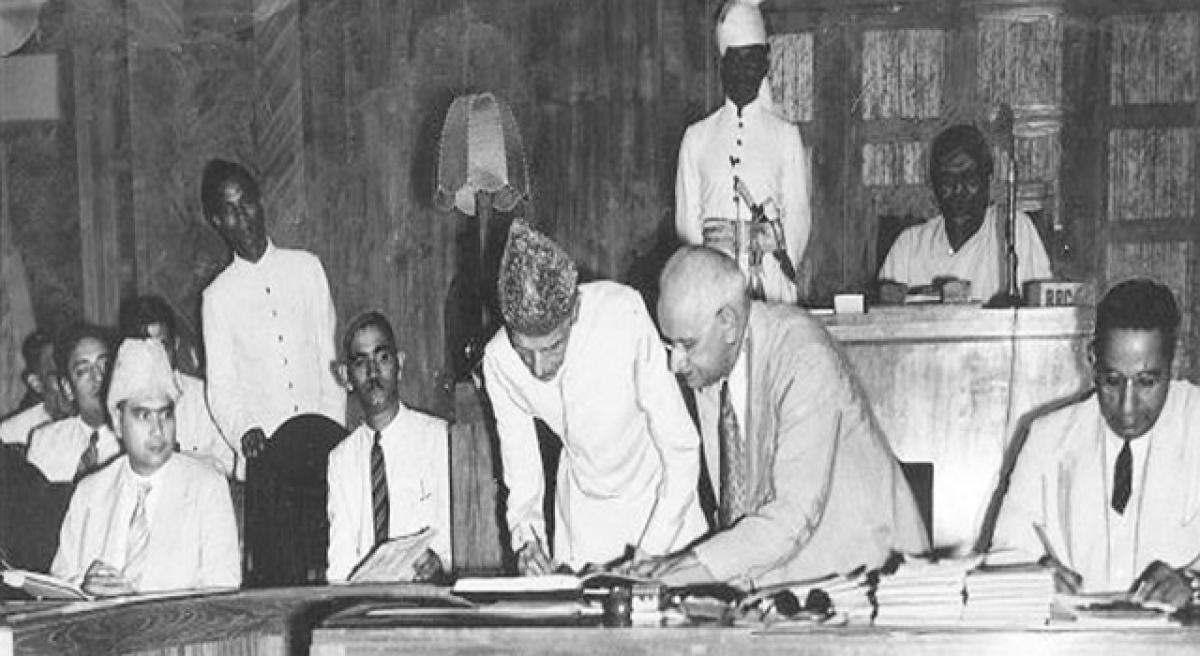The Lucknow Pact of 1916: A Landmark Agreement in India's Struggle for Independence
History Indian HistoryPosted by NewAdmin on 2025-02-04 08:46:35 |
Share: Facebook | Twitter | Whatsapp | Linkedin Visits: 32

The Lucknow Pact was a significant political agreement between the Indian National Congress (INC) and the All India Muslim League (AIML), signed in December 1916 at the joint session of both parties in Lucknow. It marked an important milestone in India's struggle for independence as it brought Hindus and Muslims together on a common political platform against British rule. This agreement was largely facilitated by Bal Gangadhar Tilak from the Congress and Muhammad Ali Jinnah from the Muslim League, who played key roles in bridging the gap between the two communities.
The backdrop of the Lucknow Pact was growing dissatisfaction with British policies, particularly after the harsh measures imposed during World War I. The repressive acts and lack of Indian representation in governance led both Hindus and Muslims to recognize the need for unity in their fight for self-rule. Tilak, who had recently re-entered active politics after his release from prison, strongly advocated for Hindu-Muslim cooperation, while Jinnah, who was a member of both Congress and the Muslim League at the time, played a pivotal role in negotiating the terms of the pact.
One of the key outcomes of the Lucknow Pact was that the Congress accepted the Muslim League’s demand for separate electorates, meaning Muslims would vote for their own representatives. In return, the Muslim League agreed to support the Congress’s demand for greater self-governance and constitutional reforms. The agreement also proposed increased representation of Indians in legislative councils, protection of minority rights, and greater provincial autonomy. Additionally, both parties demanded that at least half of the seats in legislative bodies should be occupied by Indians.
The pact was a landmark achievement as it united Hindus and Muslims against British rule, presenting a strong, collective demand for self-governance. It also strengthened the nationalist movement and increased pressure on the British government to introduce reforms. However, despite its initial success, the unity between the Congress and the Muslim League did not last long. By the 1920s, political differences emerged, and the demand for separate electorates led to growing communal tensions.
Although the Lucknow Pact eventually lost its relevance, it played a crucial role in shaping Indian politics. It was the first formal agreement between Hindus and Muslims to present a united front, and it laid the groundwork for future negotiations with the British. The pact also highlighted the leadership of Tilak and Jinnah, both of whom would continue to influence India’s political landscape in the years to come.
Search
Categories
Recent News
- Indian Girls Fight Back: Empowering Self-Defence
- Nellore MP Pushes for Swift Development with Central Funds
- Hyderabad Police Close Muslim Martial Arts Camp
- Olympic Bidding Wars: A New Era of Transparency?
- Security Forces Eliminate Terrorists in Jammu and Kashmir
- Iranian Women Break Free: Motorcycles and More
- Neves' Long-Term Commitment: Al-Hilal Secures Their Star
- Unveiling the Secrets of Seduction: China's Controversial Flirtation School
Popular News
- Navigating IPO Market Dynamics Amid Volatility and Regulatory Changes
- Massive Worldwide Microsoft Outage Disrupts Multiple Sectors
- Panjapur Bus Stand to Reshape TNSTC Routes
- తెలుగుదేశం పార్టీ - పేదరికాన్ని నిర్మూలించడంలో వాగ్దానం
- Universities Embrace Remote Learning Technologies Amidst Ongoing Pandemic